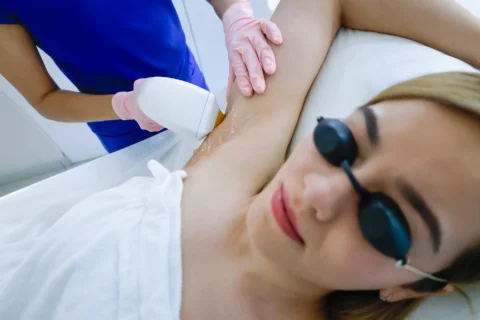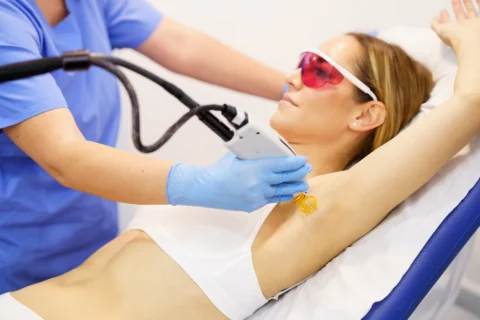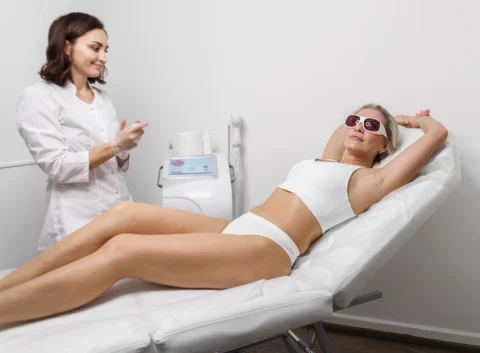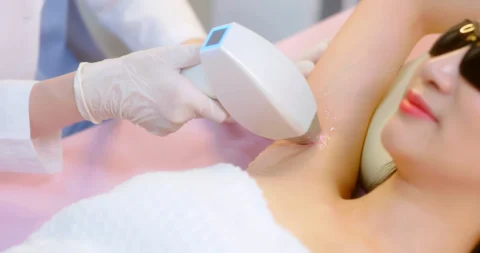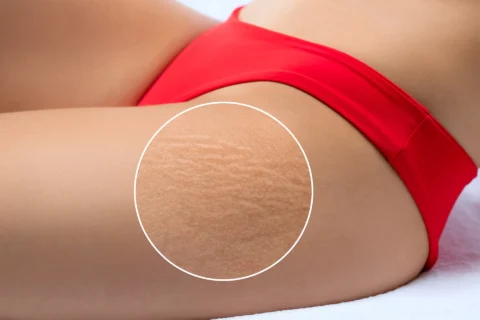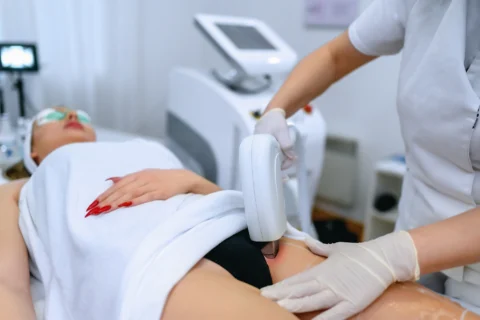Discover the truth about herpes and laser hair removal. Get all the essential information you need to know before booking your next appointment.
Imagine the liberation of smooth, hair-free skin, and the confidence that comes with it. But if you’re grappling with the concerns of how herpes might intersect with laser hair removal, you’re not alone.
There’s a wealth of information to unpack when it comes to navigating this delicate balance. Understanding the nuances and practical considerations is crucial for making an informed decision.
So, let’s shed light on the intricate relationship between herpes and laser hair removal, and empower you with the knowledge to confidently move forward in your journey towards smooth, hair-free skin and peace of mind.
Achieve Smooth Skin Safely – Consult Ethos Aesthetics + Wellness Today
Is Laser Hair Removal Safe for Genital Herpes?
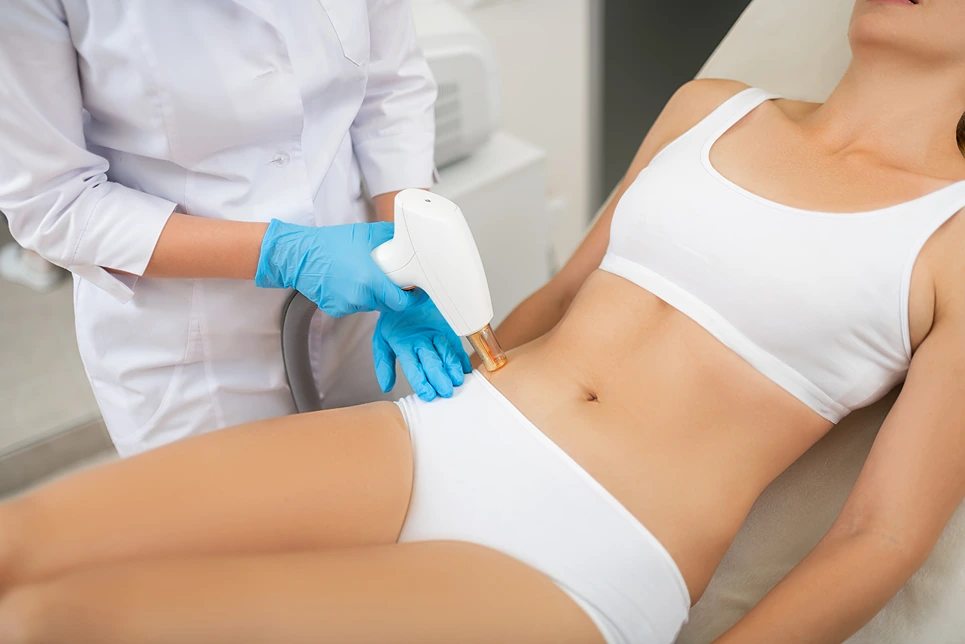
If you’re living with genital herpes and considering laser hair removal, you may be wondering about the safety of the procedure. Laser hair removal can potentially trigger herpes outbreaks due to the irritation caused by the treatment.
It isn’t recommended to undergo laser hair removal on areas affected by active herpes lesions or in regions where recurrent outbreaks occur. While the procedure itself doesn’t directly cause herpes transmission, it can lead to viral shedding and risk of infection if performed on an area with an active outbreak.
To minimize risks, it’s best to wait until any herpes symptoms have fully resolved before undergoing laser treatment near the affected site. Discussing your herpes medical history with the laser clinician is crucial to determine safety and minimize the chances of an outbreak being triggered by the procedure.
Can I Get Laser Hair Removal on Bikini Area With Herpes?
Considering laser hair removal for your bikini area while dealing with herpes? It’s important to proceed with caution.
Laser hair removal on the bikini area with herpes can potentially trigger an outbreak. It isn’t recommended to undergo the procedure during an active herpes outbreak, as it may cause a flare-up.
However, if you have a past herpes infection, it doesn’t necessarily prevent you from getting laser hair removal, but there’s a risk of triggering an outbreak.
To minimize the risk, it’s advisable to take antiviral medication and discuss the potential risks with your doctor. Rescheduling treatment or using suppressive antiviral therapy may help minimize outbreak risks associated with laser hair removal on areas affected by herpes.
Consulting with a medical professional, like Dr. Hardik Soni, is essential to ensure the safest approach.
Can Laser Hair Removal Trigger Herpes Outbreaks?
Navigating laser hair removal for the bikini area while managing herpes requires careful consideration to minimize the risk of triggering an outbreak.
Laser hair removal alone doesn’t directly cause herpes outbreaks, but the heat and irritation from the treatment can activate the dormant herpes virus, leading to symptoms like blisters or sores.
If you have a history of oral or genital herpes, it’s crucial to take antiviral medication before undergoing laser hair removal to prevent potential outbreaks. Dr. Hardik Soni recommends this approach to minimize the risk.
Additionally, it’s important to avoid laser treatments over existing cold sores or herpes lesions to prevent further irritation and spread.
Discover Safe Bikini Laser Hair Removal – Schedule Your Appointment with Ethos Aesthetics + Wellness
When Can I Get Laser Hair Removal After a Herpes Outbreak?
After a herpes outbreak, waiting until the affected area has fully healed is essential before considering laser hair removal to avoid any potential irritation or risk of recurrence. It’s crucial to prioritize your skin’s health and healing process.
Here are some essential points to consider:
- Ensure the affected area is completely healed before scheduling laser hair removal.
- Consult with a dermatologist or healthcare professional, like Dr. Hardik Soni, before proceeding with the treatment.
- Discuss the possibility of taking antiviral medication before the laser treatment to minimize the risk of triggering another outbreak.
- Be mindful of the type of laser treatment, as ablative laser resurfacing or chemical peeling may pose a higher risk of recurrent outbreaks.
Your skin’s well-being is a priority, so take the necessary precautions and seek professional advice to make an informed decision.
How to Care For Skin After Laser Hair Removal With Herpes?

Once the affected area has healed, it’s crucial to provide proper care for your skin after undergoing laser hair removal, especially if you have a history of herpes. Dr. Soni recommends keeping the treated area clean and dry. Use a gentle, unscented cleanser and pat the area dry with a soft towel.
Apply a soothing, fragrance-free moisturizer to keep the skin hydrated. It’s important to avoid picking or scratching at any scabs or blisters that may develop, as this can lead to scarring or infection. If you experience an outbreak, apply an over-the-counter antiviral cream specifically labeled for herpes.
Avoid exposing the treated area to direct sunlight and wear loose, breathable clothing to prevent irritation. Remember, seeking medical advice for severe or prolonged outbreaks is essential. Your skin’s health and comfort are a priority.
Does Laser Hair Removal Cost More with Herpes?
Managing the cost of laser hair removal can be a concern for individuals with herpes, as additional precautions and procedures may lead to increased expenses. When considering laser hair removal with herpes, keep in mind:
- Some clinics may require a herpes suppressing medication, adding to the overall treatment cost.
- Treatment may be limited to areas without an active herpes outbreak, potentially necessitating multiple sessions and increasing the total cost.
- Additional protective measures, such as disposable covers and longer intervals between clients for machine sanitation, may also drive up session costs.
- The exact additional cost varies based on individual clinic policies. Discussing your medical history, including herpes, with the laser clinic can help you get a clear cost estimate.
Some insurance plans may cover part of the additional herpes treatment costs.
Is Laser Hair Removal for Herpes Covered by Insurance?
Considering laser hair removal with herpes, it’s important to understand if insurance covers the additional costs associated with this condition.
Many health insurance plans typically don’t cover the cost of laser hair removal, as it’s considered a cosmetic procedure. However, certain insurance carriers may make an exception for treating disfiguring medical conditions, such as excessive hair growth due to medical conditions like psoriasis.
It’s essential to check with your insurance provider to determine if they cover laser hair removal for herpes or any other related medical conditions. Ethos Aesthetics + Wellness can provide guidance and recommendations regarding insurance coverage for laser hair removal in the context of herpes.
Before considering this treatment, it’s advisable to consult with both your dermatologist and insurance provider to understand the potential coverage and associated costs.
Does Laser Hair Removal Work for Herpes-Prone Areas?
If you’re considering laser hair removal for herpes-prone areas, it’s important to understand how this treatment may affect your condition. Dr. Soni recommends being cautious and informed about laser hair removal in areas prone to herpes outbreaks. Here are some key points to consider:
- Laser hair removal can potentially trigger herpes outbreaks due to skin irritation and inflammation.
- It’s best to avoid laser treatment directly over active herpes lesions or in areas prone to outbreaks.
- If you have a history of herpes outbreaks in the treatment area, consider using antiviral medication before and after the procedure.
- Some providers may still perform laser in herpes-prone areas with proper precautions, such as spacing treatments further apart or using a lower intensity laser setting.
Precision and Caution on Herpes-Prone Laser Hair Removal – Book Ethos Aesthetics + Wellness for Safe Results
How Many Laser Hair Removal Sessions Do I Need With Herpes?
When addressing the number of laser hair removal sessions needed for individuals with herpes, it’s crucial to consider the potential risk of triggering outbreaks during the treatment process.
Typically, six to eight sessions are recommended for optimal results, but if you have a history of oral or genital herpes, the risk of outbreaks may necessitate additional sessions.
It’s vital to prioritize your safety and well-being, so discussing your medical history and the risk of outbreaks with the laser clinic is essential.
Dr. Soni recommends that individuals with herpes take antiviral medication before their laser hair removal sessions to prevent outbreaks.
What Hair Removal Options Are Safe for Herpes?
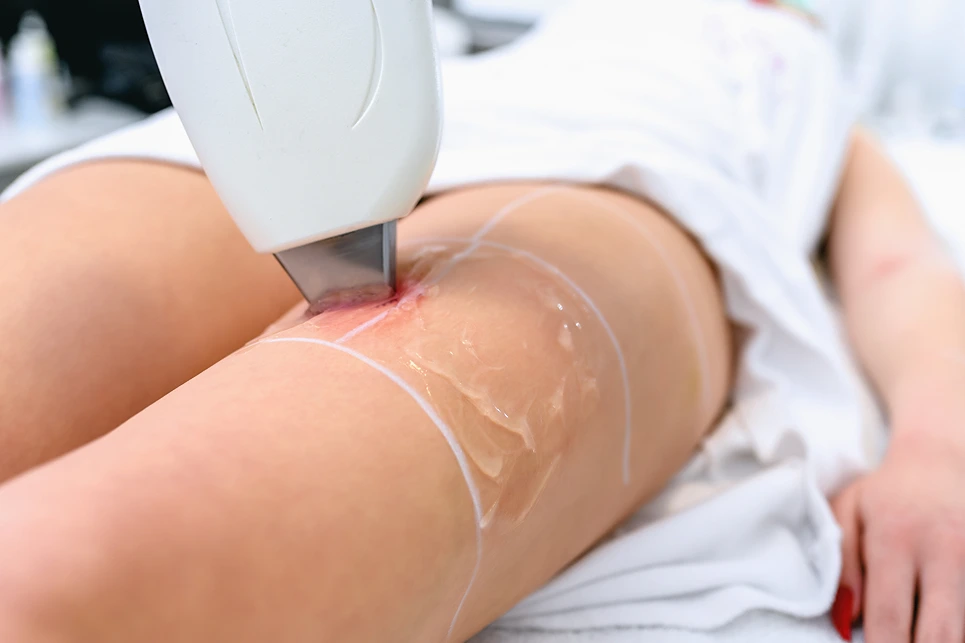
Navigating hair removal options with herpes requires careful consideration and awareness of the potential risks involved. When dealing with herpes, it’s crucial to choose hair removal methods that minimize the risk of triggering outbreaks or spreading the virus.
Most professionals recommend the following safe hair removal options:
- Shaving with a clean, sharp razor
- Electrolysis, which doesn’t involve direct contact
- Antiviral medication to reduce outbreaks and make certain hair removal methods safer
- Creams and gels for hair removal, which are low risk and don’t involve direct skin contact
Frequently Asked Questions on Herpes and Laser Hair Removal
Is Laser Hair Removal Safe for Genital Herpes?
Laser hair removal can be safe for genital herpes if managed correctly. Consult a knowledgeable practitioner, like Dr. Soni, who can provide personalized advice and treatment. It’s essential to discuss your medical history openly for the best outcome.
Can I Get Laser Hair Removal on the Bikini Area With Herpes?
Yes, you can get laser hair removal on the bikini area with herpes, but it’s crucial to consult a dermatologist first. They’ll provide personalized advice and may recommend antiviral medication to minimize the risk of flare-ups during the treatment.
Can Laser Hair Removal Trigger Herpes Outbreaks?
Laser hair removal can trigger herpes outbreaks. It’s essential to consult with a dermatologist or healthcare professional before proceeding. Take care of your skin and prioritize your health by seeking expert advice.
When Can I Get Laser Hair Removal After a Herpes Outbreak?
You can get laser hair removal after a herpes outbreak once the sores have completely healed. It’s crucial to wait until the skin has fully recovered to avoid any potential complications. Always consult with a medical professional for personalized advice.
How to Care for the Skin After Laser Hair Removal With Herpes?
After laser hair removal with herpes, gently cleanse and moisturize the treated area. Avoid harsh products, tight clothing, and direct sun exposure. If you experience discomfort or unusual symptoms, consult with a healthcare professional for proper care.
Schedule a Consultation at Ethos
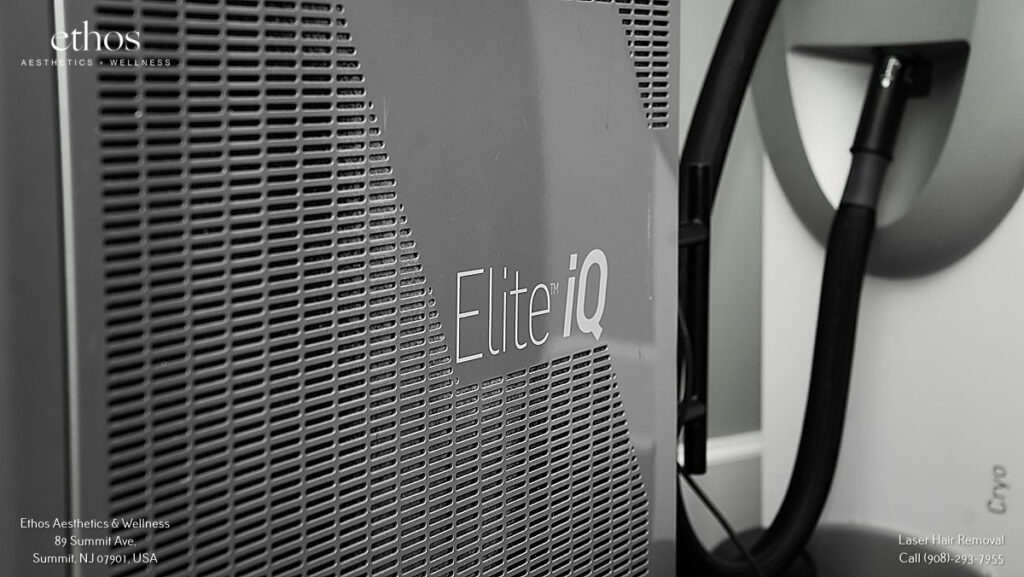
So, there you have it – all the essential information you need to make an informed decision about laser hair removal and herpes.
Remember, it’s important to consult with a qualified medical professional to discuss your specific situation and any concerns you may have.
With the right guidance and care, you can confidently navigate the intersection of herpes and laser hair removal for a safe and effective experience.
Your Skin, Your Story: Begin Your Laser Hair Removal Journey – Book a Consultation with Ethos Aesthetics + Wellness Now!


